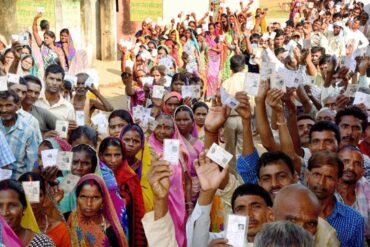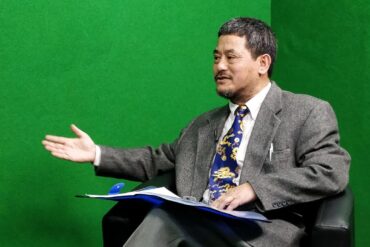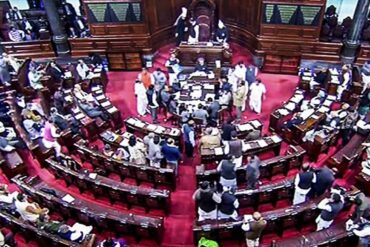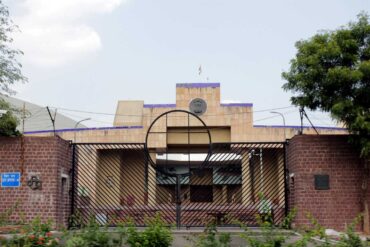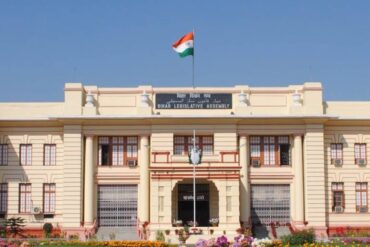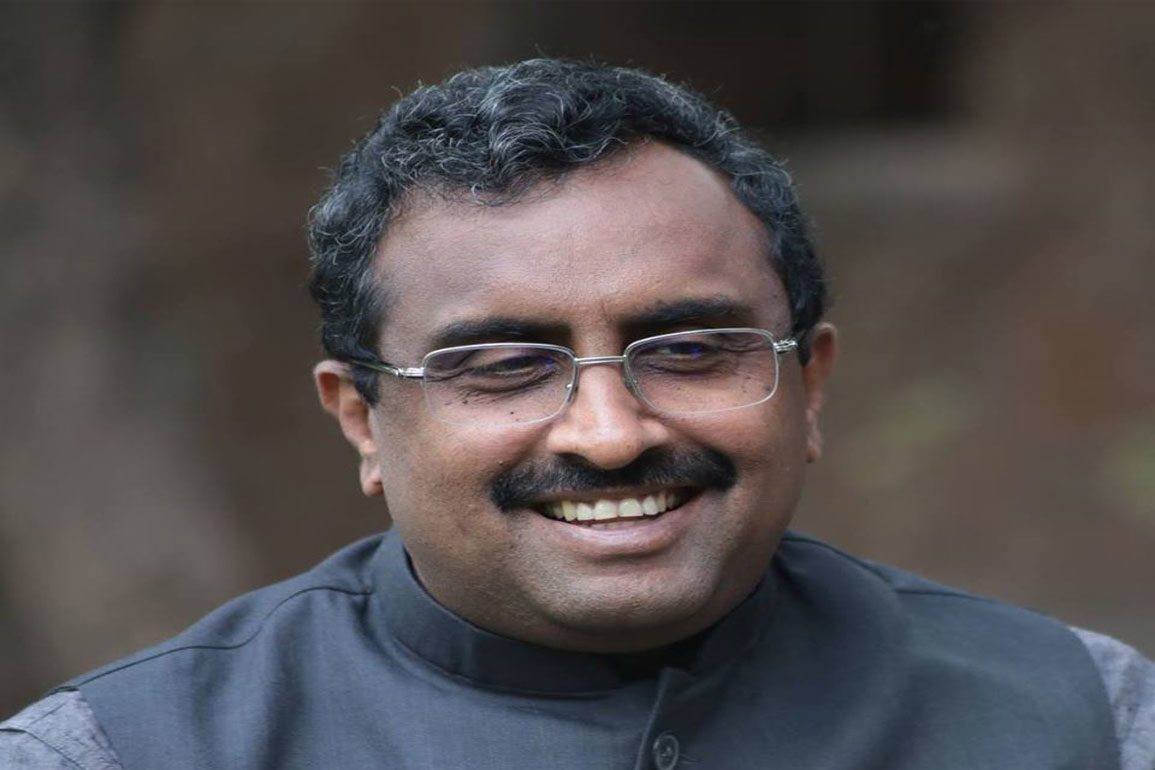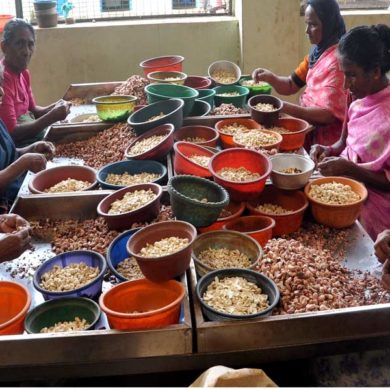BJP National General Secretary and Senior Pracharak of the RSS, Ram Madhav, who is loaned to the party said that the country has to prepare itself for a greater role to play in the emerging new world order. He said that Post–Covid world order will be guided by a different agenda than the present one and added that climate change, health care, frontier technologies like artificial intelligence and rule-based world order will take the front seat and added that in all these areas India is a natural leader. He however said that the country needs to manage its house internally well and for that, the economy has to return to normalcy and social cohesion and harmony have to be ensured. He was speaking exclusively to The Kochi Post.
Q: People across the globe are facing the threat of Covid-19 with deaths touching more than 3 lakhs; But India is comparatively doing well on this count. Is this owing to a proper management of the crisis?
India has managed the virus well compared to other nations both in terms of its spread as well as the number of casualties. It is primarily because of three reasons: One, the visionary leadership of PM Modi. He has taken all the difficult but right decisions at the right time. He has taken everybody, including the Opposition, along. Second, the administration, including the police and healthcare workers, doctors, nurses and sanitary workers have risen to the occasion in an unprecedented manner. It is the same system which used to be viewed as corrupt and inefficient earlier. Third, and most important, are the 1.3 billion Indians. They stood united, followed good discipline and displayed commitment in the fight against Covid-19. That is the reason why the Modi government was not forced to use any authoritarian measures to manage the situation. The net result is a well-managed pandemic.
Q: Government has brought forward a 20 lakh crore package to overcome the crisis following the lockdown. Will this package bring back normalcy in the country?
The 20 lakh crore package that the government has announced is aimed essentially at arresting job losses in the country. Agriculture offers more than 40% jobs in the country. It was given big support in this package. Similarly, the MSMEs account for 60% of the remaining jobs. They too were given close to 4 lakh crores of financial incentives. We need to keep in mind that India has over 13-14 crore migrant workers working largely in MSME and agriculture sectors. Only a small fraction of them have attempted to go back to their villages. Majority have stayed back in the hope that their jobs and works would return. Government’s priority is to ensure reopening of MSMEs and agriculture sector as early as possible so that these workers will stay put and resume their jobs. The scenario otherwise would be about much bigger flight of these workers to villages. In that sense, this package will help stop flight of labour by resuming their jobs and kick-start the economy.
Q: There is criticism that the Government did not transfer money directly to the accounts of the needy even after calls from several economists including Nobel laureates Amartya Sen, Abhijit Banerjee and former Reserve Bank Governor Raghram Rajan for the same.
The government has spent 1.7 lakh crore on welfarist measures in the last two months. Over 40 crore poor people have been provided with food rations. Over 30 crore women from poor families are being provided Rs 500 every month. Over 8 crore households have been provided LPG free. Even in the 20 lakh crore package, certain welfare measures have been extended to migrants and the poor. All this is being done to ensure that the migrants and poor do not face any difficulty with respect to basic needs. Transferring money directly into the hands of the poor for generating demand in a trickle-up manner is Keynesian economics. It is credible. But there are other credible models too. Government is open to all.
The country is facing a major migration crisis and more than 300 people have died on the way to their homes, either owing to fatigue or being hit by a speeding motor vehicle. Could this have been prevented?
After the first lockdown was announced on 25 March, the government made elaborate arrangements for food and stay of the migrant workers. That is the reason why a large section of the migrants did not leave their work places. Role of the NGOs cannot be understated in it as also the arrangements made by State governments. Preventing the spread of virus called for immediate lockdown. Yet, a good number of migrants have decided to return to their villages out of anxiety. Facilitating their travel involved the combined efforts of both the state and central governments. Where the coordination was good, the facilitation happened rather easily. Where the governments are less sensitive to the situation, there were problems. It is true that migrant workers who undertook perilous journeys by foot or other private means had to endure suffering. PM Modi had apologized to them with folded hands. The problem will soon be over as the Indian Railways and other public transport have been pressed into service in a big way.
Q: Several rating agencies including Goldman Sachs have predicted a poor growth rate for the country and a falling GDP; will this be true and if so, will the government bring some more restructuring?
There is bound to be some negative economic fallout of the Covid pandemic on the entire world including India. PM Modi has emphatically talked about reforms. Atma-nirbhar Bharat (Self-reliant India) is one such major paradigmatic reform. In line with it, many policy reforms have been initiated. Some have already been announced by the Finance Minister. Post-Covid economy will be radically different from the present one. Our government is preparing India to face that new economic reality.
Q: You are credited for out-of-the-box political experiments in North East and even in Jammu and Kashmir while being the party in-charge of these strategic areas. Can you narrate those experiences?
These are difficult areas for the BJP not only organizationally, but also for demographic reasons. Both J&K and the North East have a predominant minority population. We have succeeded in taking the BJP to these areas thus making it the only pan-Indian party today. We are in power either on our own or together with alliance partners in seven out of the eight north eastern states. We were in power for three years until recently in J&K. The rise of BJP in these difficult areas has demonstrated the success of PM Modi’s ‘Sab ka Saath–Sab ka Vikas’ model at one level while it has helped in spreading the party’s ideology of ‘one nation–one people’ at another level. It is quite a satisfying journey in that sense.
Q: There are reports that you are not actively seen in public life for the past few months. Were you on a sabbatical or is it something else?
I am very much active in my party work coordinating the activities in the north east and Jammu & Kashmir.
Q: You are a senior Pracharak of the RSS deputed to the BJP and has been the face of the party in several international forums. Will you use these new contacts for solving the vexed political issues with some of our neighbouring countries?
At a personal and organizational level, I have always helped people in the government with my contacts across the political and public leaderships in various countries. International relations being one of my areas of interest, I continue to work with many institutions and leaders in different countries and that will help promote India’s cause in those countries.
Q: There have been some issues of late at Ladakh between Indian forces and the Chinese forces. Will this fizzle out?
India-China relations are on a sound, yet different footing today under PM Modi and President Xi. India follows the policy of proactive diplomacy together with strong ground posturing. The strong ground posturing component sometimes invites face-off with the other side. But both countries know how to manage such situations and maintain peace and goodwill.
Q: The leadership of the WHO has decided to hold a review into its handling of the Covid-19 pandemic. Do you feel that this is owing to the pressure put forward by countries including India and, can this be considered against China?
Trying to reach the origin of the pandemic is very important because it helps make the search for vaccines easier. WHO’s decision should be seen in that light only; not as against any other country.
Q: China has succeeded in preventing the participation of Taiwan in the virtual World Health Assembly meet at Geneva citing One China policy. Will China have to revoke its position on International pressure at a later stage?
Taiwan had enjoyed observer status between 2009-2016 when a pro-China government was in power in Taipei. It was designated at that time as ‘Chinese Taipei’. The pro-freedom DPP party has come back to power in 2016 and continues even now. It doesn’t agree with the nomenclature of ‘Chinese Taipei’. That is the reason why the country is not attending WHO sessions as an observer. The US had tried to bring in Taiwan as an observer this year. However, the WHO Assembly did not take up the matter on its agenda. Since it was not on the agenda, India has no reason to comment about it.
Q: Do you feel that post-Covid, India will emerge as a major power? Our Prime Minister has called upon the states to provide facilities to MNCs relocating from China. Will big companies be coming to our country?
Post-Covid world order is going to be guided by a different agenda than the present one. Security, trade et al will take a back seat as countries in the post-pandemic world would turn inwards more. But there will be new agenda items like climate change, healthcare, frontier technologies like artificial intelligence and rule-based world order. In all these areas India is a natural leader. That will attract many companies to India. In that sense, India has to prepare for a greater role to play in the emerging new world order. That calls for India to manage its house internally well. Economy has to return to normalcy quickly and social cohesion and harmony have to be ensured.
Q: Will you be taking up more responsibilities in the party and government in the near future?
As an RSS Pracharak loaned to the party, my role is confined to party work. Whatever the party assigns me under the new president J P Nadda will be my work.

